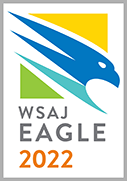Krutch Lindell attorneys have extensive experience handling claims involving the errors and omissions of Air Traffic Control. Attorneys must be familiar with the legacy “radar-based” ATC system, as well as the new, GPS based ATC system, known as ADS-B. Attorneys at Krutch Lindell have given presentations to other attorneys on the ADS-B system, and as pilots, fly in the ADS-B environment.
In general, the liability of the federal government plays a large role in ATC cases. Broadly speaking, “The Federal Tort Claims Act grants federal courts jurisdiction over damages claims against the United States ‘for injury or loss of property, or personal injury or death caused by the negligent or wrongful act or omission of any employee of the Government while acting within the scope of his office or employment.’” GATX/Airlog Co. v. United States, 286 F.3d 1168, 1173 (9th Cir. 2002)(citing 28 U.S.C. § 1346(b) (Supp. IV 1998). Under the FTCA, the government may be held liable for negligence “in the same manner and to the same extent as a private individual under like circumstances.” 28 U.S.C. § 2674. However, the government has not waived its immunity under the FTCA for claims based upon the exercise or performance or the failure to exercise or perform a discretionary function or duty on the part of a federal agency or an employee of the Government. 28 U.S.C. § 2680(a).
The “discretionary function” exception is designed to “prevent judicial ‘second-guessing’ of legislative and administrative decisions grounded in social, economic, and political policy.” Gaubert, 499 U.S. at 323, 111 S.Ct. 1267 (quoting Varig Airlines, 467 U.S. at 814, 104 S.Ct. 2755). Where the exception applies, the court lacks subject matter jurisdiction. Reed v. United States Dep’t of the Interior, 231 F.3d 501, 504 (9th Cir.2000); Vickers v. United States, 228 F.3d 944, 949 (9th Cir.2000).
In aviation, this discretionary function exception is litigated in many different contexts such as air traffic control negligence and pilot examiner negligence. In the aviation products sphere, FTCA claims are often tied to the product certification scheme discussed above, either in the improper issuance of a Type Certificate or Supplemental Type Certificate, or in the issuance of an individual airworthiness certificate.
Whether a challenged action falls within the discretionary function exception requires a particularized analysis of the specific agency action challenged. GATX/Airlog Co. v. United States, 286 F.3d 1168, 1174 (9th Cir. 2002). Courts engage in a two-part test to conduct the required analysis:
First, for the exception to apply, the challenged conduct must be discretionary—that is, it must involve an element of judgment or choice. This requirement is not satisfied—and the suit may therefore proceed—where a “federal statute, regulation, or policy specifically prescribes a course of action for an employee to follow,” because “[i]n this event, the employee has no rightful option but to adhere to the directive.” In short, where alleged conduct violates a mandatory directive, it is not discretionary. Id. (citations omitted).
Next, if the conduct involves choice or discretion, the court must then “determine whether that judgment is of the kind that the discretionary function exception was designed to shield.” The focus is on “the nature of the actions taken and on whether they are susceptible to policy analysis.” The decision “need not actually be grounded in policy considerations so long as it is, by its nature, susceptible to a policy analysis. When a statute or regulation allows a federal employee to act with discretion, it must be presumed that the agent’s acts are grounded in policy when exercising that discretion.” Id. (citations omitted).
The government bears the burden of proving that the discretionary function exception applies. Id. In large part, the government has been successful in meeting this burden in the context of certification and airworthiness. In United States v. S.A. Empresa de Viacao Aerea Rio Grandense (Varig Airlines), 467 U.S. 797, 104 S. Ct. 2755, 2756, 81 L. Ed. 2d 660 (1984, the Court held that the discretionary function exception protected the government from liability for the FAA’s alleged negligence in connection with its issuance of a type certificate and an STC. A similar result was had in GATX/Airlog Co. v. United States, 286 F.3d 1168, 1175 (9th Cir. 2002). The government has also been immunized from liability for alleged negligent inspection of actual aircraft parts. See, Proctor v. United States, 781 F.2d 752, 754 (9th Cir. 1986).

